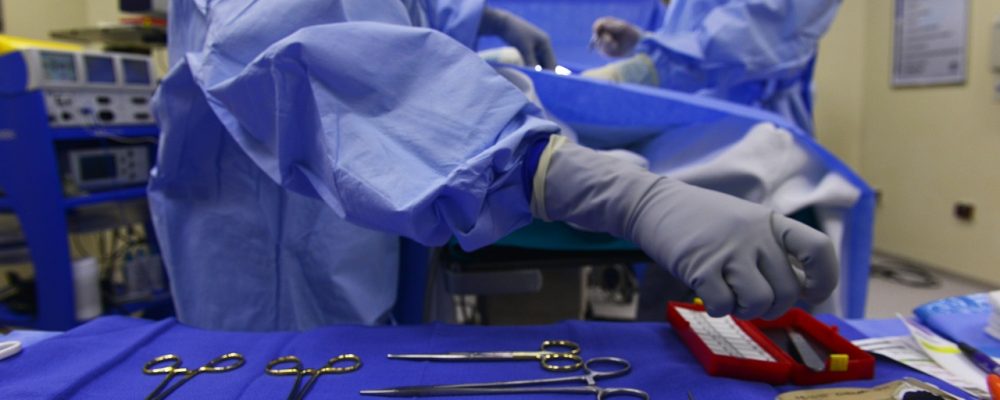In line with the Dubai Health Authority’s(DHA) effortsto combat the spread of COVID-19, most elective and non-emergency surgical procedures were postponed. The main purpose for this postponement was to facilitate efficient utilization of healthcare resources andallow for prompt healthcare access for COVID-19 patients.A second reason is the lack of blood donation and hence the need to preserve the available blood supply.
This is a well-thought out measure by the health authorities in ensuring all possible health resources are readily available for timely treatment of coronavirus patients. Additionally, it plays a big role as a precautionary measure to stop the spread and flatten the curve.
As other sectors also healthcare is currently slowly opening up to normal operations again. DHA, in line with the easing ofrestrictions of the overall economy in Dubai,is slowly and surely opening up andallowingsome of these non-emergencies procedures, which is another milestone in ensuring that operations recommence in a safe and calculated approach.
Delayed Elective Surgeries and Their Impact on Patients’ Wellbeing
Elective and non-emergency surgical procedures make up 70-80% of a hospital’s activity, whichmeans that patients rely highly on these medical procedures, even though they may be considered non-lifesaving in the short-term, but none-the-less vital in the long run.
While the delay/postponement of these procedures has been put in place by the health authorities, some patients have alsodecided to delay their elective procedures (although some of these procedures are now allowed) because they worry about exposure to the virus, hence avoid going to the hospital.
But what most people may not be aware of, is that delaying some of these elective surgeries can impact the patient’s psychological wellbeing and quality of life, leading to a decline in health. According to studies, long waiting times for elective surgical procedures can threaten timely care for patients.
For instance, a patient suffering from gallstones, hernia or musculoskeletal disorders might not require immediate surgery, hence delaying the recommended surgical procedure. Thesurgery would be considered non-emergency, butits delay can lead to a deterioration of the symptoms, which as a result can affect the patient’s quality of life.A delay on a knee surgery can definitely lead to mobility issues and prolonged discomfort in the long run. Other notable elective procedures that can highly impact the patient’s wellbeing include pain management and physiotherapy, which if delayed for long, can lead to some patients taking higher doses of their prescribed pain medications.
Additionally, further studies have also shown that complications may occur due to the delay of an elective surgery, which can lead to further difficulties in the patient’s life and wellbeing.
Even with the resumption of some of these elective procedures, there are still wait lists, in addition to maximum capacity allowed. And to decide who gets the necessary elective procedure, healthcare specialists have to ask themselves if the delay in an elective or non-emergency procedure is harmful to the wellbeing of the patient or not; and if one patient needs it more than the next. So, at leastin the foreseeable future, the delays will still persist, and patients will still be impacted.
Impact of Elective Procedures to Operational Revenue
Elective and non-emergency procedures that were postponed to create capacity for COVID-19 patients,typicallymake up 80% of the revenue for healthcare providers in the UAE. The postponement has also had a massive impact on the revenue of the hospital and has led to many healthcare providers struggling, as evidenced by a recent report in the press.
Is There a Roadmap to Re-entry?
Although the lockdown and postponement of elective procedures has seen a decline in revenue, with some studies suggesting that recovery could take years, major hospitals have created other revenue streams which include telemedicine and home healthcare. King’s has seen this as an addition to our other service lines, and it will remain in place even after the lockdown and postponement of non-emergency surgeries are lifted. However, these new services are not replacing the revenue coming from the core activity of non-emergency surgery.
At the end of the day, COVID-19 has affected everyone, not only the ones who have tested positive and our frontline heroes. At King’s College Hospital London in Dubai, whose model is based on King’s College Hospital in the UK, we are proud to be part of this unified and coordinated approach by all authorities in combating COVID-19. It has shown that if all healthcare providers and authorities, whether public or private, act as one coordinated healthcare system we can overcome even the most unexpected challenges. We’re all in this together and together we will overcome these challenges.





